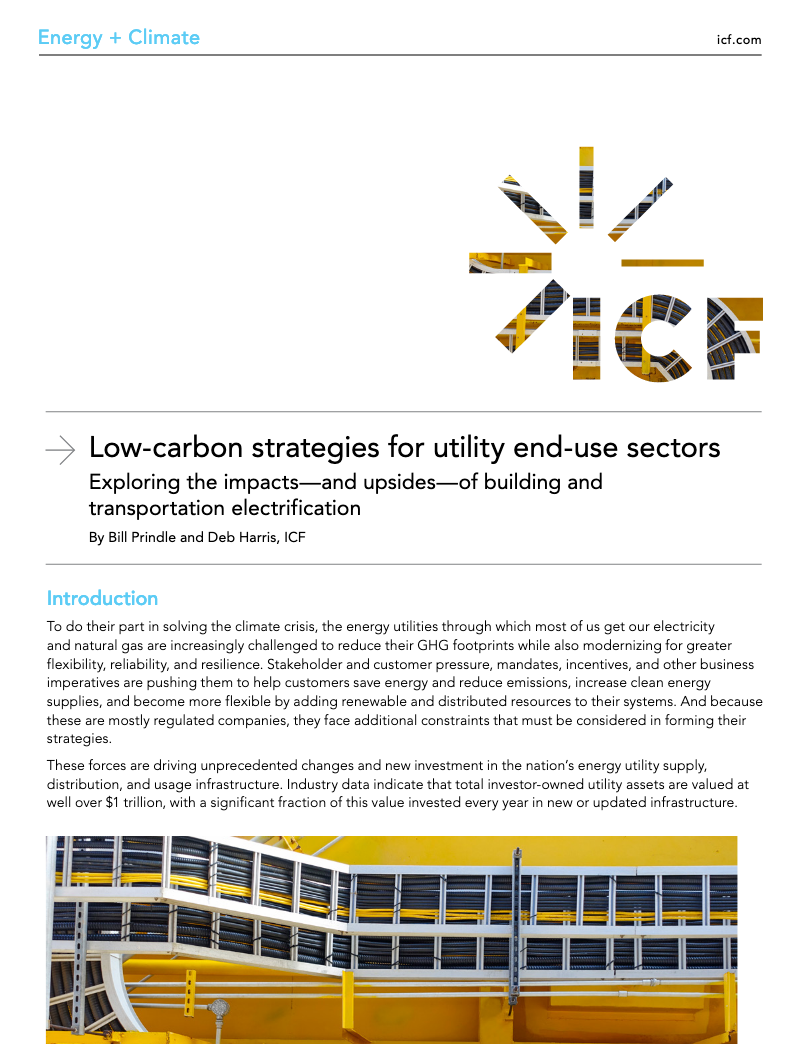Full Title: Low-Carbon Strategies for Utility End-Use Sectors
Author(s): William Prindle, Deb Harris
Publisher(s): ICF
Publication Date: April 7, 2021
Full Text: Download Resource
Description (excerpt):
Energy utilities are challenged to reduce their GHG footprint to do their part in mitigating the impacts of climate change. This paper looks at two key end-use sectors utilities serve: buildings and transportation. Both are carbon-intensive—making them ripe for low-carbon solutions, including electrification.
But these two sectors are very different. While buildings consume most of the nation’s current energy supply, the transportation sector is poised to shift energy use from the oil industry to the electricity industry through the rise of electric vehicles (EV) and related infrastructure. This paper takes a closer look at the strategies that can make the impacts of decarbonization in these sectors positive for utilities and their customers: understanding the impacts of timing and the power demand intensity of EV charging patterns on shaping electric loads; optimizing decarbonization in buildings by bundling efficiency upgrades (such as replacing windows or upgrading insulation) with new heating equipment in order to make the package more economical and to limit grid impacts; and using automating systems and efficiency upgrades to drive operational efficiency and guide investments in efficient and grid-interactive technologies.
